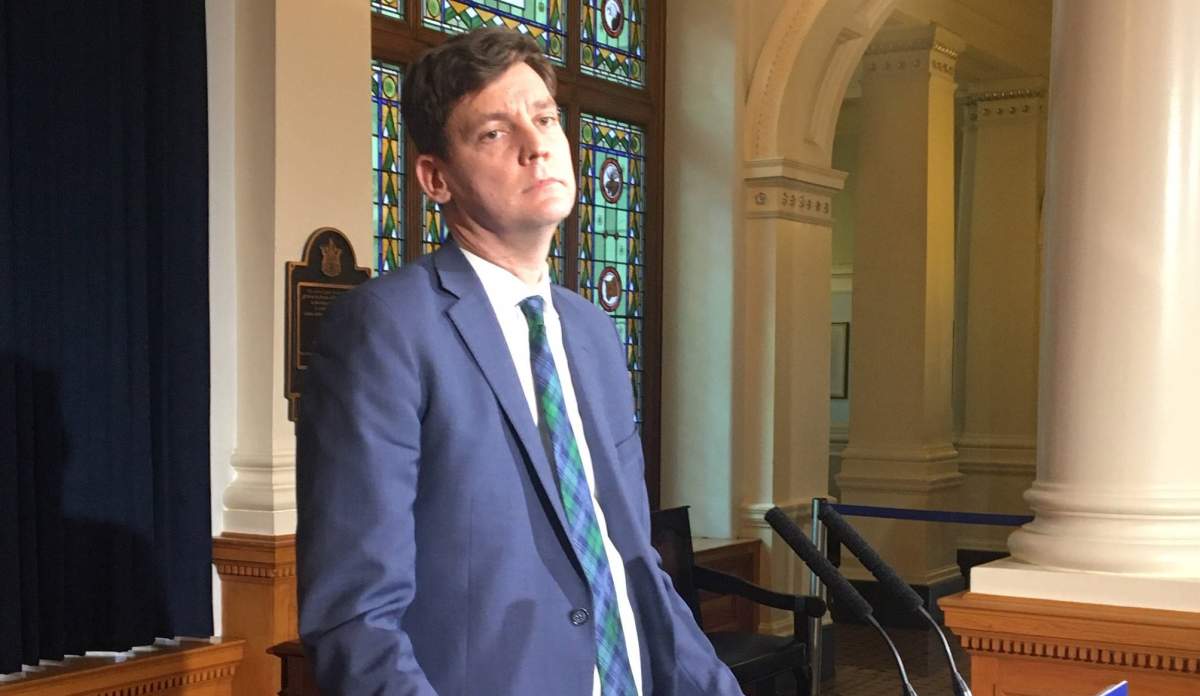B.C. Attorney General David Eby says his government will not appeal a B.C. Supreme Court decision that quashed the province’s ability to restrict expert reports in ICBC settlement cases.

Instead, the province will be introducing legislation in the spring to impose limits on those expert reports in crash cases.
“By pursuing these amendments in the spring, we hope to find some financial savings for litigants including ICBC,” Eby said.
“We hope to reduce costs for claimants so they can keep more of their settlements and keep it from expensive, adversarial reports.”

The Supreme Court ruling is a major blow to the province’s plans to right the financial ship at ICBC. The province estimates the restriction on expert reports, which was introduced in February, would have led to an extra $400 million in the provincial coffers.
ICBC has lost more than $1 billion in each of the last two years.

Get breaking National news
The province brought in major changes in April, including a $5,500 cap on soft tissue injury settlements. Those changes are currently being challenged in court and are expected to save more than $1 billion a year.
Eby says the public insurer is still experiencing financial problems and it’s unclear how much money the legislation could save.
- Real Canadian Superstore fined for ‘misleading’ Product of Canada displays
- ‘No reason to continue discussing’: Ontario mayor wants Andrew’s name dropped
- Danielle Smith promises Alberta referendum over immigration, Constitution changes
- Trump’s global tariffs were struck down. Don’t expect price drops: experts
“We are expecting ICBC will show a loss in Quarter 2. The pressure on ICBC’s bottom line continues to come from greater than anticipated losses for bodily injury claims from historical cases,” Eby said.
“We will be taking some time with ICBC’s actuaries on the financial impact of the legislative changes.”
B.C. Supreme Court Chief Justice Christopher Hinkson ruled the B.C. government’s limits on expert reports was unconstitutional because it violated the powers of a court’s control over its processes.
“I find that the impugned rule compromises and dilutes the role of the court, and encroaches upon a core area of the court’s jurisdiction to control its process,” Hinkson writes in the ruling that was released last month.
“While I accept the submission of the Attorney General that the impugned rule does not prevent the court from receiving expert evidence entirely, I find that instead of leaving it to the litigants to meet their burden of proof by adducing the necessary evidence, it places a duty on the court to ensure that it has sufficient expert evidence before it determines a proceeding on its merits.”
The legal challenge was brought in part by the Trial Lawyers Association of British Columbia (TLABC), which argued that change would lead to unprecedented interference and was an attack on the “most grievously injured British Columbians.”

The TLABC is welcoming the decision by the province not to appeal the court decision.
“We continue to encourage the attorney general to work with the rules committee and the chief justice to pursue balanced reforms that will benefit all British Columbians,” the association wrote in a statement.
The provincial government says vehicle injury claims have increased by 43 per cent in the past five years, and the increased use of experts has contributed to a 20 per cent increase in ICBC’s litigated injury settlements over the last year.
Experts and expert reports are used to address the issue of damages — such as wage loss, future wage loss, and future care — that can be used by each side of a motor vehicle dispute.
Under the proposed new rules, parties would have been able to use only one expert and report for claims less than $100,000, and up to three experts and reports for all other claims.








Comments
Want to discuss? Please read our Commenting Policy first.